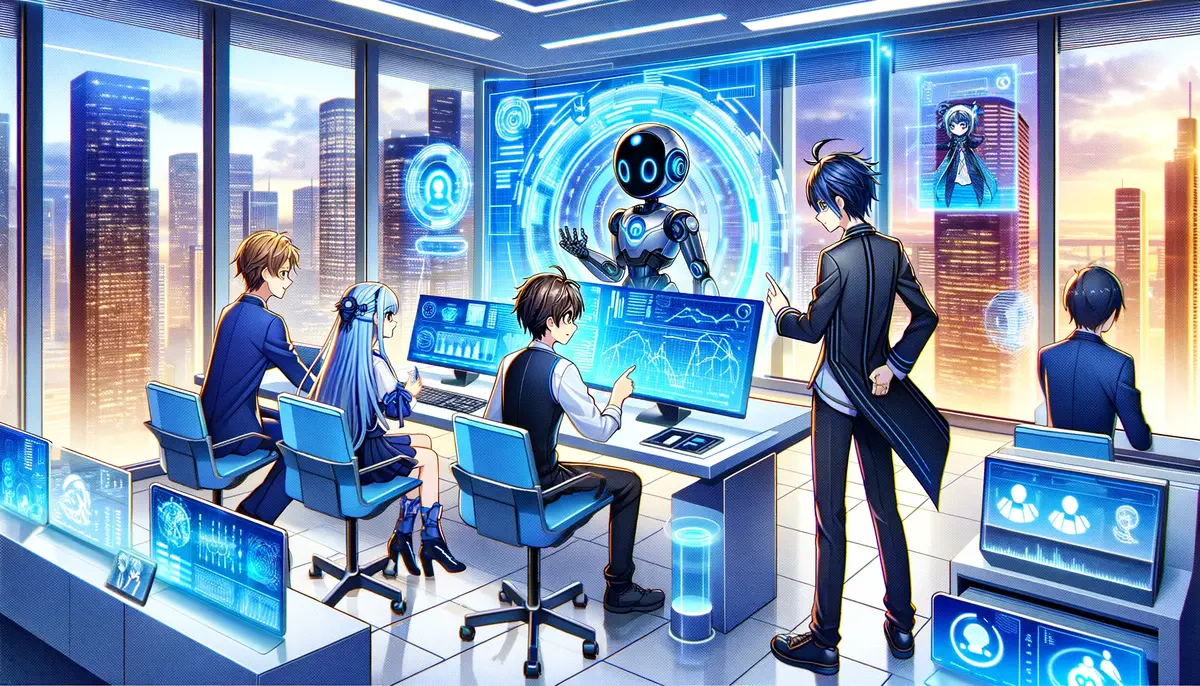Artificial Intelligence (AI) is no longer a futuristic concept—it’s a present-day reality reshaping industries and redefining the workforce. As we navigate through 2025, AI’s influence on the job market is profound, bringing both unprecedented opportunities and significant challenges. This article delves into how AI is altering employment landscapes, the sectors most affected, and strategies for adapting to this new era.
The Dual Impact of AI on Employment
AI’s integration into various sectors has led to a dual impact: automation of certain roles and the creation of new job categories.
Job Displacement: Roles at Risk
AI’s capability to perform repetitive and data-driven tasks has put several roles at risk:
- Administrative and Clerical Jobs: Positions involving routine data entry, scheduling, and basic information processing are increasingly automated.
- Customer Service Representatives: AI-powered chatbots and virtual assistants handle a growing share of customer inquiries, reducing the need for human agents.
- Manufacturing and Assembly Line Workers: Robotics and AI systems perform tasks with greater efficiency and precision, leading to reduced demand for manual labor.
A report by the World Economic Forum predicts that by 2027, AI and automation could displace 83 million jobs globally, particularly affecting roles with predictable and repetitive tasks.

Job Creation: Emerging Opportunities
Conversely, AI is also a catalyst for job creation, especially in areas requiring human oversight and advanced technical skills:
- AI Specialists and Data Scientists: The development and maintenance of AI systems require skilled professionals to design algorithms, manage data, and ensure ethical use.
- Cybersecurity Analysts: As AI systems become integral to operations, protecting them from cyber threats is paramount, leading to increased demand for cybersecurity experts.
- AI Ethics and Compliance Officers: Ensuring AI systems operate within ethical and legal frameworks is crucial, creating roles focused on governance and compliance.
- Healthcare Professionals: AI aids in diagnostics and treatment planning, but human professionals are essential for patient interaction and decision-making.
The same World Economic Forum report anticipates the creation of 69 million new jobs by 2027, highlighting the dynamic nature of AI’s impact on employment.
Industries Undergoing Transformation
AI’s influence varies across industries, with some experiencing more significant changes than others.
Healthcare
AI applications in healthcare include diagnostic tools, personalized treatment plans, and administrative automation. While AI enhances efficiency, it also necessitates upskilling for healthcare workers to effectively collaborate with AI systems.
Finance
In the financial sector, AI automates tasks like fraud detection, risk assessment, and customer service. Financial analysts and advisors are now expected to interpret AI-generated insights, blending technical proficiency with human judgment.
Retail
AI-driven inventory management, personalized marketing, and customer service chatbots are transforming retail operations. Employees are transitioning from transactional roles to more strategic positions focusing on customer experience and data analysis.
Education
AI personalizes learning experiences and automates administrative tasks in education. Educators are adapting by integrating AI tools into curricula and focusing on developing students’ critical thinking and creativity—skills less susceptible to automation.
Adapting to the AI-Driven Job Market
As AI continues to evolve, individuals and organizations must proactively adapt to remain competitive.
Emphasizing Lifelong Learning
Continuous skill development is essential. Embracing lifelong learning through online courses, workshops, and certifications helps individuals stay abreast of technological advancements and industry trends.

Developing Soft Skills
While AI excels at data processing, it lacks emotional intelligence, creativity, and interpersonal skills. Cultivating these uniquely human attributes ensures individuals remain indispensable in the workforce.
Pursuing Interdisciplinary Knowledge
Combining expertise in AI with knowledge of specific industries (e.g., healthcare, finance) creates versatile professionals capable of bridging technical and domain-specific gaps.
Engaging in Ethical and Responsible AI Use
Understanding the ethical implications of AI and advocating for responsible use ensures technology serves humanity positively. Professionals well-versed in AI ethics are increasingly valuable.
The Role of Policy and Education Systems
Governments and educational institutions play a pivotal role in preparing the workforce for AI integration.
Policy Initiatives
Implementing policies that support workforce transition, such as funding for reskilling programs and incentives for companies that invest in employee development, is crucial.
Educational Reforms
Curricula must evolve to include AI literacy, coding, data analysis, and ethics from early education levels, equipping future generations with relevant skills.
Conclusion
AI’s transformative impact on the job market is undeniable. While it poses challenges through job displacement, it also offers opportunities for innovation and growth. By embracing continuous learning, developing soft skills, and advocating for ethical AI use, individuals can navigate this evolving landscape successfully. Collaborative efforts between governments, educational institutions, and industries are essential to ensure a future where AI augments human potential rather than replaces it.
